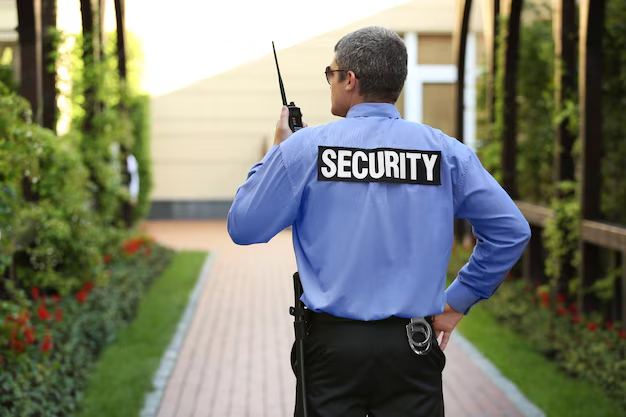In the modern urban setup, the gated community has been the preferred option for families who want a secure and regulated place to live. The residential enclaves provide privacy, less traffic, and a perceived protection against crime. At the heart of this feeling of security is the residence security guard, an individual who takes a central role in making the community safe at all times.
Why Security Guards Matter in Gated Communities
Security in gated communities is more than mere walls or closed-circuit television cameras. Technology may be able to track movement, but it cannot substitute for human presence in being able to respond instantly and exercise judgment. A residence security guard is the first line, ordering the crowd, deterring unauthorised entrance, and responding in emergency situations.
Their presence also scares off criminal elements. Research has established that sight security, particularly human guards, greatly reduces the chances of burglary and trespassing. Tenants feel secure knowing that someone is actually there to monitor their property.
Major Responsibilities of a Residence Security Guard
The duty of a residence security guard extends beyond standing at the gate. Their responsibilities are usually:
- Observing entry and exit points.
- Checking the identity of visitors and service staff.
- Patrol of common zones such as parks, clubhouses, and parking lots.
- Informing the authorities or home management of suspicious activity.
- Response to emergencies like fire, medical emergencies, or fights.
They are educated to stay vigilant during their shift, keep records, and utilise communication equipment optimally. In most situations, guards also help in domestic fights or neighbours’ complaints prior to escalating into major occurrences.
Residence vs Commercial Security Guards
Although both residence security guards and commercial security guards are assigned the responsibility of guarding property and individuals, the nature of their work is different in a variety of ways.
Residence security guards tend to work in more intimate and close-knit neighbourhoods. Their work demands interpersonal skills because they frequently deal with residents and visitors. Knowing the residents enables them to easily identify unknown or suspicious behaviour.
Conversely, commercial security guards are employed in more active environments like malls, offices, or factory buildings. They usually interact with a greater number of individuals per day and may receive training in crowd management, access card systems, and shoplifting or corporate theft.
In spite of these distinctions, both positions require attentiveness, physical fitness, and a keen sense of responsibility.
The Need for Professionalism and Training
The performance of a residence security guard is more or less dependent on the training they undergo. In India, residential societies tend to hire guards from private security companies. These guards should be trained in basic security procedures, responding to emergencies, and communication.
A trained security guard can render life-or-death judgments in an emergency and prevent incidents from escalating to catastrophic proportions. Professionalism is also embodied in how guards behave – on-time, well-presented, and polite – as they are tasked with making the first impression of the community.
Additionally, most societies today demand guards with background checks and experience to ensure reliability and trustworthiness.
The Role of Technology in Supporting Security
Though human security cannot be replaced, technology is able to supplement their work. Access control systems, CCTV cameras, boom barriers, and alarm systems are common in gated communities. Residence security guards are frequently trained to man and manage these systems so that each security layer works in unison.
Technology cuts down the chances of human error. For example, electronic visitor management systems can monitor each person walking into the compound, and CCTV footage can serve as proof in the event of a dispute or an incident.
Security Agencies and the Need for Trustworthy Partnerships
The selection of a good security partner is essential for a gated community. Residential societies today look for specialised security agencies that comprehend the specific needs of housing colonies.
Crest Force India is one of those security providers that offers custom security solutions for residential and commercial customers. With a team of trained professionals, they ensure their guards possess the ability to attend to the subtle needs of community-based security. Their strategy blends human awareness with the most advanced technology, ensuring order and peace are maintained in residential premises.
Through collaborations with companies such as Crest Force India, housing societies become exposed to guards who are not merely watchmen, but holistic professionals who are trained in discipline, etiquette, and safety protocols.
Conclusion
In an era where privacy and safety are so important, the position of a residence security guard cannot be taken lightly. Having them present in gated subdivisions means not only physical protection, but also the security of mind that comes from knowing one is safe. Commercial security guards are important in offices and business districts, to be sure, but residential settings need guards who are as alert and personally attached to the welfare of the community.
Eventually, an investment in professional and trustworthy security officers is perhaps one of the most beneficial methods through which gated communities can protect their people, property, and way of life.









